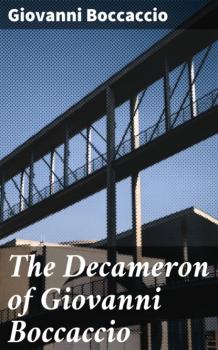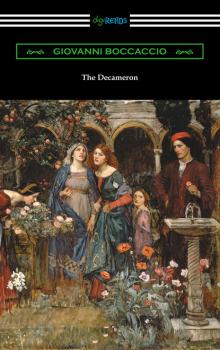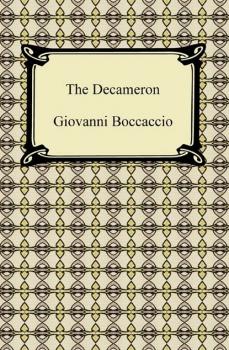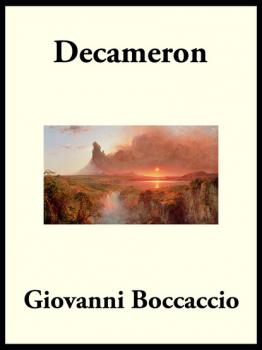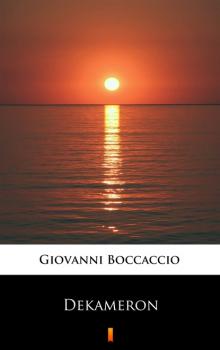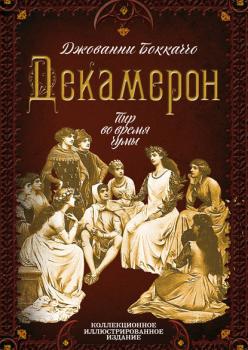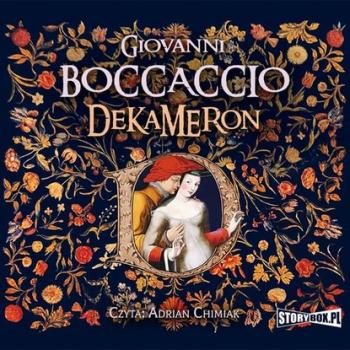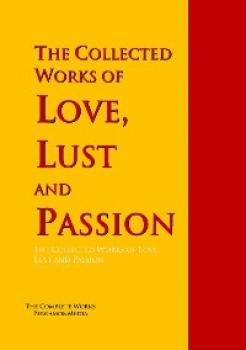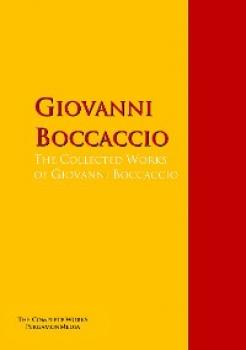Джованни Боккаччо
Список книг автора Джованни БоккаччоThe Decameron of Giovanni Boccaccio
"The Decameron of Giovanni Boccaccio" by Giovanni Boccaccio (translated by John Payne). Published by Good Press. Good Press publishes a wide range of titles that encompasses every genre. From well-known classics & literary fiction and non-fiction to forgotten−or yet undiscovered gems−of world literature, we issue the books that need to be read. Each Good Press edition has been meticulously edited and formatted to boost readability for all e-readers and devices. Our goal is to produce eBooks that are user-friendly and accessible to everyone in a high-quality digital format.
The Decameron (Day 6 to Day 10)
"The Decameron (Day 6 to Day 10)" by Giovanni Boccaccio (translated by John Florio). Published by Good Press. Good Press publishes a wide range of titles that encompasses every genre. From well-known classics & literary fiction and non-fiction to forgotten−or yet undiscovered gems−of world literature, we issue the books that need to be read. Each Good Press edition has been meticulously edited and formatted to boost readability for all e-readers and devices. Our goal is to produce eBooks that are user-friendly and accessible to everyone in a high-quality digital format.
The Decameron (Translated with an Introduction by J. M. Rigg)
Written in the middle of the 14th century as the Bubonic Plague decimated the population of Europe, “The Decameron” is a satirical and allegorical collection of stories by Italian author Giovanni Boccaccio. Constructed as a series of “frame stories,” or stories within a story, the narrative follows seven young women and three young men who take refuge in a secluded villa outside Florence in order to escape the Black Death. During ten evenings of their stay, each of travelers takes turns as storyteller to pass the time. Their stories relate tales of love, both happy and tragic, examples of the power of fortune and human will, and exhibitions of virtue, cleverness, and trickery. Boccaccio’s work is not only important for its superb literary quality but for its examination of the changing cultural values that defined the transition from medieval times into the renaissance. The virtues of intelligence and sophistication of the increasingly urbanized and mercantilist Europe are shown as superior to the relative simplicity and piousness of the feudal system. More than the sum of its parts, “The Decameron” is a milestone in the history of European literature, an influential and enduring masterpiece. This edition is translated with an introduction by J. M. Rigg.
The Decameron
Written in the middle of the 14th century as the Bubonic Plague decimated the population of Europe, «The Decameron» is a satirically allegorical collection of stories by the Italian author Boccaccio. The refined frame narrative of this work allows for ten Florentine women and men to flee the city and take refuge in a country villa of Italy. In the ten days they are to stay, each of them is to tell a story a day, the themes of which are determined by the elected king or queen for that day. Most of the 100 tales are those of love, from erotic to tragic to rather surprising, portraying people of all social stations with a full spectrum of human reactions. More than the sum of its parts, «The Decameron» has inspired countless works of art, and later writers, such as Chaucer, have been influenced by his tales of fate, desire, crisis, and adventure. A milestone in the history of European literature, this imaginative narrative is an enduring masterpiece.
Decameron
The 'Decameron', also called 'Prince Galehaut', is a 14th-century medieval allegory by Giovanni Boccaccio, told as a frame story encompassing 100 tales by ten young people. The book's primary title exemplifies Boccaccio's fondness for Greek philology: Decameron combines two Greek words, Greek: déka («ten») and (Greek: hēméra («day»), to form a term that means «ten-day event». Ten days is the time period in which the characters of the frame story tell their tales.
Декамерон. Пир во время чумы
В XIV веке, когда Италия была объята эпидемией чумы, сотни трупов застилали мостовые города, люди готовились к концу света. Три благородных юноши и семь юных девушек сбежали из самого жерла эпидемии за город. Закрывшись от мира на старинной вилле, они стали коротать вечера, рассказывая друг другу истории. Одни из историй поражали своей откровенностью, другие – пугали, а третьи заставляли молодых людей неожиданно вспомнить о том, что на самом деле значат такие слова, как: любовь, человечность и благородство. Каждый день они обсуждали ужасные подробности чумной эпидемии, почти уничтожившей их родной город, и каждый день, желая ощутить радость жизни на пороге смерти, они рассказывали все более захватывающие и ужасающие истории. Десять дней они рассказывали по десять историй. «Декамерон» Боккаччо стал одним из главных произведений итальянского Ренессанса. Великая книга была написана в 1350-х годах, после вспышки чумы, унесшей половину населения Италии. Церковь запретила «Декамерон» из-за большого количества аморальных, эротических и жестоких сцен, но жители страны моментально полюбили книгу, воспевающую силу любви и радость к жизни, книгу, описывающую все, даже самые ужасные стороны человеческой жизни и напоминающую о силе человеческого духа. Как никогда «Декамерон» актуален и сегодня. Предлагаемое издание содержит в себе самый полный перевод книги, изданный без каких-либо купюр и сокращений.
The Collected Works of Love, Lust and Passion
This comprehensive eBook presents the complete works or all the significant works – the Œuvre – of this famous and brilliant writer in one ebook – 14819 pages easy-to-read and easy-to-navigate:
• THE KAMA SUTRA OF VATSYAYANA • MY SECRET LIFE – Anonymous Author • FORBIDDEN FRUIT – LUSCIOUS AND EXCITING STORY AND MORE FORBIDDEN FRUIT OR MASTER PERCY'S PROGRESS
• MEMOIRS OF FANNY HILL – By John Cleland • VENUS IN FURS by LEOPOLD VON SACHER-MASOCH
• The Life and Amours OF THE Beautiful, Gay and Dashing Kate Percival – The Belle of the Delaware • THE SATYRICON by Petronius Arbiter • THE DECAMERON OF GIOVANNI BOCCACCIO • EROTICA ROMANA By Johann Wolfgang Goethe • ULYSSES by James Joyce
The Collected Works of Giovanni Boccaccio
The Decameron – Decamerone, subtitled Prince Galehaut is a collection of novellas by the 14th-century Italian author Giovanni Boccaccio (1313–1375). The book is structured as a frame story containing 100 tales told by a group of seven young women and three young men sheltering in a secluded villa just outside Florence to escape the Black Death, which was afflicting the city. Boccaccio probably conceived the Decameron after the epidemic of 1348, and completed it by 1353. The various tales of love in The Decameron range from the erotic to the tragic. Tales of wit, practical jokes, and life lessons contribute to the mosaic. In addition to its literary value and widespread influence, it provides a document of life at the time. Written in the vernacular of the Florentine language, it is considered a masterpiece of classical early Italian prose.
